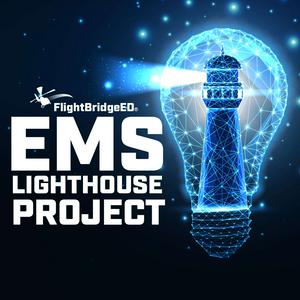E95 - LUCAS Literature
Last episode we described the literature showing no survival benefit to patients with the AutoPulse device. Fear not, I wasn’t ignoring the LUCAS, I just felt it deserved it’s own episode. We’ll cover the LINC and PARAMEDIC randomized controlled trials and the secondary analysis of LINC in shockable rhythms. I switched to a new production process using a new mic (Rode NT1) and started using ecamm to record. Yes, I know there is a bit of AV dysynchrony.. I’m working on it. I still have a lot to learn about ecamm but am optimistic about it. Citations on LUCAS device:1. Rubertsson S, Lindgren E, Smekal D, Östlund O, Silfverstolpe J, Lichtveld RA, Boomars R, Ahlstedt B, Skoog G, Kastberg R, et al.: Mechanical Chest Compressions and Simultaneous Defibrillation vs Conventional Cardiopulmonary Resuscitation in Out-of-Hospital Cardiac Arrest: The LINC Randomized Trial. JAMA. 2014;January 1;311(1):53–61.2. Perkins GD, Lall R, Quinn T, Deakin CD, Cooke MW, Horton J, Lamb SE, Slowther A-M, Woollard M, Carson A, et al.: Mechanical versus manual chest compression for out-of-hospital cardiac arrest (PARAMEDIC): a pragmatic, cluster randomised controlled trial. The Lancet. 2015;385(9972):947–55.3. Hardig BM, Lindgren E, Östlund O, Herlitz J, Karlsten R, Rubertsson S: Outcome among VF/VT patients in the LINC (LUCAS IN cardiac arrest) trial—A randomised, controlled trial. Resuscitation. 2017;June;115:155–62. Citations on Jeff’s Tamiflu Rant1. Jefferson T, Jones M, Doshi P, Spencer EA, Onakpoya I, Heneghan CJ: Oseltamivir for influenza in adults and children: systematic review of clinical study reports and summary of regulatory comments. BMJ. 2014;348:g2545.2. Jefferson T, Jones MA, Doshi P, Del Mar CB, Hama R, Thompson MJ, Onakpoya I, Heneghan CJ: Risk of bias in industry-funded oseltamivir trials: comparison of core reports versus full clinical study reports. BMJ Open. 2014;4(9):e005253.3. Jefferson T: The Tamiflu Story: Why We Need Access To All Data From Clinical Trials. Open Knowledge Foundation Blog.

